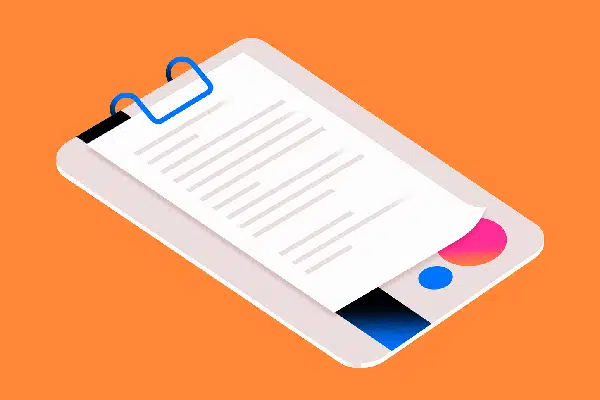Struggling Financially? Pulling Your Credit Report Can Help

Just lost your job or got your work hours reduced? Stressed out about your bills and what could happen if you can’t pay for it all? You've got lots of company.
In a recent study by TransUnion, 58% of those surveyed said they’ve been financially impacted by the coronavirus crisis and expect to be unable to pay their bills or loans in approximately six weeks. This comes as no surprise, since on April 4th, the U.S. Department of Labor reported that over 6.6 million Americans had filed for unemployment, bringing the total number of unemployment claims to close to 17 million in just three weeks—levels that have experts drawing comparisons to the Great Depression.
So, if your current situation has you imagining all sorts of terrible scenarios of what could happen if you can’t pay your bills, know that there are steps you can take to get ahead of the situation. One good place to start is getting a copy of your credit report, especially if you’ve been good with your finances throughout the years.
How Your Credit Report Can Help You Now
Your credit report is basically your financial calling card. It contains information, such as the accounts under your name, original and current balances, the duration of those accounts, payment history, whether you’ve filed for bankruptcy or if you’ve had anything sent to collections. In other words, it shows how responsible or risky of a borrower you are.
According to experts, understanding what’s in your credit report can help you in two different ways: knowing where you stand with your creditors and renegotiating your current payment agreement.
“Looking at your credit report and looking at the information that's reporting on all three credit bureaus gives you the most complete picture of where you are in terms of your financial obligations,” says Bruce McClary, Vice President of Communications at the National Foundation for Credit Counseling (NFCC).
McClary explains that having this report on hand can help you analyze and better understand which debts you should prioritize, and which lenders you should contact to evaluate your options.
Additionally, your credit report can be a powerful tool when trying to negotiate a new payment agreement with unwilling creditors, particularly if your accounts are still in good standing. Credit card companies are working with borrowers affected by the pandemic.
“If you are forced to be late on some bills and your creditors are not willing to work with you, that copy can serve as actual proof that you are a strong consumer, and that you represent a low risk," says Dara Duguay, CEO of the Credit Builders Alliance.
Creditors have access to your credit report too, of course. But you're in a better bargaining position if you're familiar with it yourself, experts say.
How It Can Help You Moving Forward
Understanding your credit report not only comes in handy to know which creditors you should contact, or to negotiate a temporary payment agreement, it can also help you down the line if you need to take out a loan.
While each lender has its own criteria, most will consider your credit history as part of their application process, and will give you the chance to explain any irregularities before making a decision.
“Many lenders who have direct interaction with you, like an auto loan at the dealer, will look at your credit report, and you can have the opportunity to explain the situation,” says Duguay. “You can actually say, ‘Hey, look at this great credit report that I had in March.’ So, when they see the difference between March, and maybe June, it'll show that it was really disaster-related and had nothing to do with you being a risky individual.”
“If up until that point, you were making timely payments for that particular account and all of your other accounts, then clearly it's not something that is problematic for a lender,” says McClary.
This will potentially increase your chances of getting approved and securing a reasonable interest rate.
How to Get a Free Credit Report
You can request a free copy of your credit report from each of the three main credit bureaus (Experian, TransUnion and Equifax) in the U.S. once a year. You can do so by visiting their jointly operated website, AnnualCreditReport.com.
To get your free credit report, you’ll need to provide your name, address, Social Security number and date of birth. Once you submit this information, you should be able to access your report immediately. However, it should be noted that this copy does not include your credit score, but you can review all of your information and make sure that everything is correct.
You can also request a free copy of your credit report by calling this toll free number, although it may take up to 15 business days to process your request.
Protecting Your Credit During The Crisis
Although most lenders are extending some sort of economic relief thanks to the CARES Act, there are still a few other steps you can take to protect your credit if you are struggling financially:
Request an AW
“You can put a special code called ‘AW’,” says Duguay. The AW is a code lenders and credit reporting agencies use to mark an account as being affected by a natural or declared disaster, or in this case, the COVID-19 crisis.
According to Duguay, having this code next to any open account is a simple way to protect your credit score while you get back on your feet. While this won't necessarily stop your credit score from dropping, it does protect your VantageScore, which is another type of credit score model that combines the information found on all three main bureaus. This is not something you can do on your own. In order to get this noted on your accounts, you must contact the lender or the credit reporting agency directly, so they do it for you.
Add a 100-Word Explanation
Another easy way of protecting your credit, and it’s something overlooked by many consumers, is adding a 100-word statement next to your credit report explaining any financial hardships you may have faced that led to any negative activity, like a late or missed payment.
“All consumers have the right to put up to a 100-word explanation next to anything that's negative on their credit report. If there’s something that's not good, like for example, if you couldn't pay a bill because you were laid off or if it was related to COVID-19, you should put an explanation there. This won’t necessarily affect your credit score, but a lot of individuals look at your credit report and not your score. So that's where it would make a difference,” says Duguay.
You can add this statement by contacting each of the credit bureaus directly.
Call Them before They Call You
Finally, don’t be afraid to contact your creditors. "Even if it's uncomfortable, I always tell people that it’s much better to call your creditors before they have to call you," Duguay says. "If you call them before you're having a problem, they're much more willing to work with you than if you avoid them."
More from Money:
It's Suddenly a Lot Harder to Find a New Credit Card. Here's How You Can Still Get Approved
Best Balance Transfer Credit Cards of 2020
3 Key Budget Moves for Surviving a Job Loss, According to Financial Planners
